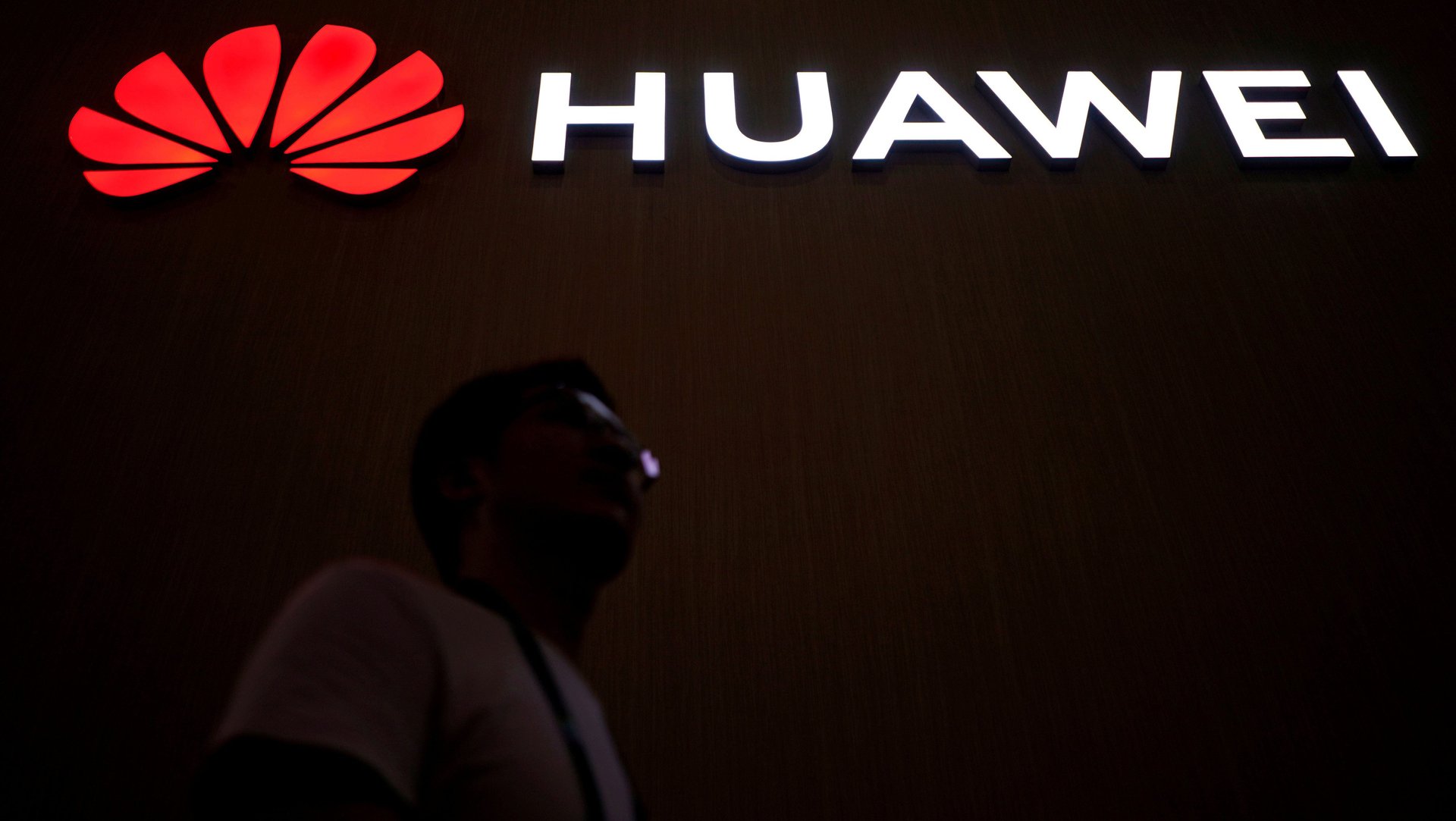The US just declared war on the Chinese company it loves to hate most
Canadian authorities have arrested Meng Wanzhou, Huawei’s chief financial officer, at the request of US law enforcement, the Globe and Mail reported yesterday (Dec. 5). Meng was arrested on suspicion of violating trade sanctions on Iran, a Canadian Justice Department spokesman said, and will be extradited to the United States.


Canadian authorities have arrested Meng Wanzhou, Huawei’s chief financial officer, at the request of US law enforcement, the Globe and Mail reported yesterday (Dec. 5). Meng was arrested on suspicion of violating trade sanctions on Iran, a Canadian Justice Department spokesman said, and will be extradited to the United States.
The arrest—which appears to have taken place on Saturday (Dec. 1), the same day Donald Trump and Xi Jinping were meeting in Argentina to reduce trade tensions—marks a serious escalation of US action against a Chinese tech giant that Washington has long been suspicious of. It could dramatically worsen relations between the US and China, the latter of which already sees the trade war as an effort to contain its technological advancement.
Meng, who will have a bail hearing on Friday, is the daughter of Ren Zhengfei, who founded Huawei and was a deputy director in the People’s Liberation Army’s engineering corps. Ren’s military experience is one of the state ties cited by the US in warnings that using the firm’s equipment could make data vulnerable to access by the Chinese government.
US fears about the potential for Chinese spying and China’s technological advances have increased as the world prepares to move to 5G networking technology, whose speed is supposed to help usher in the internet of things, such as self-driving cars. Huawei, the world’s biggest maker of cellular equipment and second-biggest seller of smartphones, has been at the forefront of developing 5G.
Huawei said it has received very little information about Meng’s arrest and is not aware of any wrongdoing by her.
China’s embassy in Canada said the country was violating Meng’s human rights and called for her release.
The Wall Street Journal reported in April (paywall) that US prosecutors were looking at whether Huawei had violated the Iran sanctions. That report came soon after ZTE faced a ban on buying components from US firms, for not complying with a settlement it agreed to after pleading guilty to violating sanctions on Iran and North Korea. The ban forced it to temporarily cease production until the US and China negotiated a compromise.
Huawei has largely been shut out of the US since 2012, when a report from US House lawmakers (pdf) warned of national security risks from using its equipment as well as that of Chinese telecom firm ZTE. None of the major US carriers offer Huawei phones, although the company had hopes that would happen this year. A White House memo that was leaked in January showed the US was considering nationalizing 5G to counter China, and named Huawei as a threat.
The arrest comes as the US has stepped up efforts lobbying its allies to shut out Huawei from their 5G deployment. In August Australia announced that Huawei wouldn’t be able to participate in building its 5G network and in recent days New Zealand took a similar step. In the UK, a major customer for Huawei equipment, BT said it will limit use of the company’s equipment in key areas of its network.
One reason for the greater concern around keeping 5G secure is the speed of the network, and the kinds of offline devices and interactions that could potentially be affected. Experts have warned that the network’s architecture will make it more vulnerable, with data being processed in a more dispersed way than in earlier networks, making it harder to protect. Huawei has said it’s developing 5G technology to include encryption that will make it harder to hack signals to or from a device.
Despite the long-standing suspicions, there has been little clarity about whether Huawei has actually engaged in cyberspying. The company has disputed the allegations of ties to the Chinese state, and says it strongly protects data privacy.
Meng’s arrest quickly became a top topic of online discussion on Chinese social media platforms like the microblog Weibo, with many expressing anger against the US and pride in Chinese technology.
One Weibo commenter (link in Chinese) quoted the following line from the patriotic Chinese blockbuster Wolf Warrior 2 (link in Chinese): “Chinese citizens: When you are in danger overseas, don’t give up. Remember, there is a strong motherland behind you.”
Another declared:
We need to make the US understand: The great Chinese do not fear power or threats. Nothing can stop our continued pace of progress. Any difficulties will become a stepping stone to continue forward. China is constantly striving to be stronger. Huawei is invincible.
China watchers warned that US companies and executives could face retaliation from Beijing. James Lewis, director of technology policy at the CSIS think tank in Washington, told Axios news site: “They will retaliate and China will take hostages… If I was an American tech executive, I wouldn’t travel to China this week.”